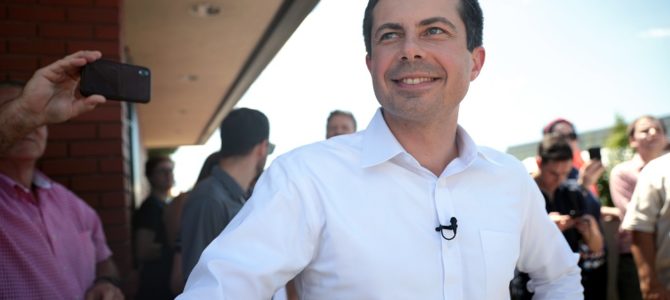
Late Thursday, the St. Joseph County, Indiana clerk’s office confirmed that South Bend Mayor Pete Buttigieg’s campaign disclosure reports from 2011 were shredded. Indiana state law allows for the disposal of campaign filings after four years, and personnel with the clerk’s office told The Federalist that Buttigieg’s records were destroyed because of the “retention schedule.”
Yet, earlier last week, The Federalist was able to obtain from the clerk’s office the 2008, 2009, and 2010 campaign reports filed by Buttigieg’s predecessor, former mayor Steve Luecke. Additionally, The Federalist obtained the 2011 filings of candidates for the South Bend Common Council, suggesting the “retention schedule” may serve as a useful excuse to justify destroying reports detailing Buttigieg’s earliest political donors.
Below are screenshots of the other local politicians’ campaign reports obtained by The Federalist from the clerk’s office, even though Buttigieg’s same records for 2011 are now reportedly gone.
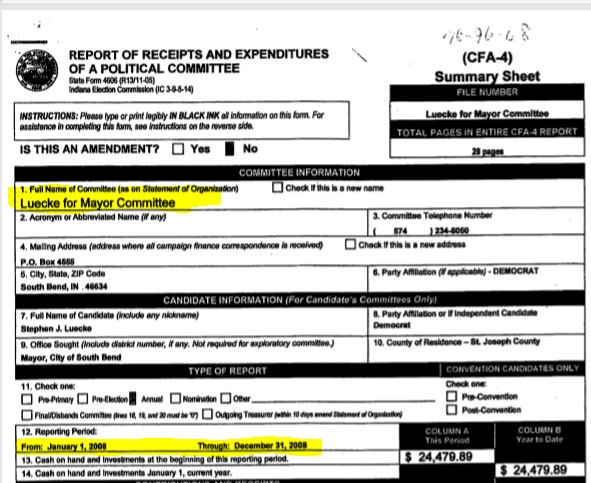
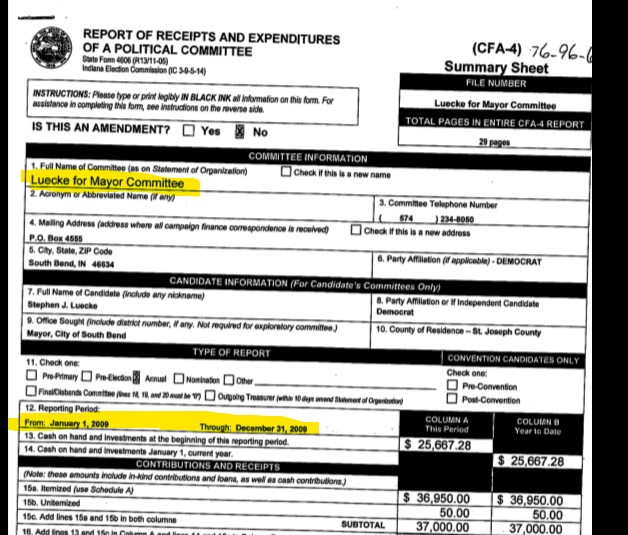
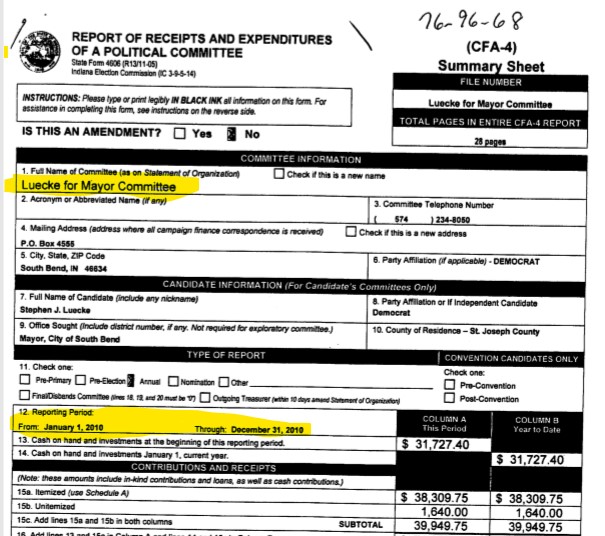
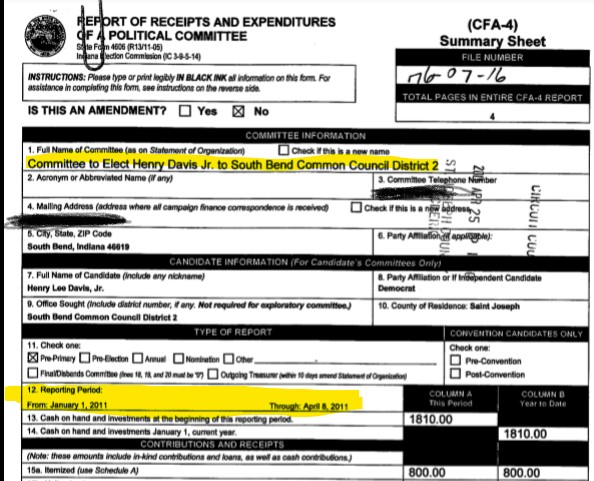
Who Were Those Donors?
The discovery of the medically preserved remains of more than 2,000 aborted babies at the home of the late South Bend, Indiana abortionist Ulrich “George” Klopfer has raised questions concerning any connections between Klopfer and Buttigieg, who is now a top-tier Democratic presidential candidate.
When Buttigieg first ran for mayor of South Bend in 2011, the now-deceased Klopfer was still operating the local abortion clinic, the Women’s Pavilion, leading many to question whether Klopfer or his businesses—which included abortion clinics in Gary and Fort Wayne—donated to Buttigieg’s campaign. Klopfer later lost his license to practice medicine and the South Bend Women’s Pavilion was shuttered in 2016.
Also of concern is whether Liam Morley, a former colleague of Klopfer at the Women’s Pavilion, or others working with him had supported Buttigieg’s campaign. If so, that raises more questions: did early financial backing from abortion advocates give them Buttigieg’s ear when he was later lobbied to keep a pro-life pregnancy and family resource center from opening next door to the new abortion facility that replaced Klopfer’s?
The Federalist asked Buttigieg and his campaign whether they would release the 2011 reports and whether they received donations from Klopfer or local abortion advocates, the latter of whom he later backed in their fight against the pro-life Women’s Care Center. Neither returned the request for comment. Morley also did not respond to a request for comment.
If Buttigieg does not release the 2011 reports, it leaves one to wonder what it would reveal, especially as the news of Klopfer’s horrifying hoarding continues to develop. Just Friday, Indiana Attorney General Curtis Hill confirmed during a press conference that Klopfer had attached to each set of human remains he collected medical records identifying the location and the date of the abortion. All occurred between 2000 and 2002. Hill also verified that the state had searched all three sites where Klopfer had performed abortions in Indiana over his 40-year tenure and that no other remains were found.
A spokesperson for Hill’s office did not return The Federalist’s request for comment on whether the medical records also identified the mothers of the deceased children by name. However, during his press conference, Hill stressed that his office had set up a confidential help line for women concerned that the remains of their aborted babies had been recovered at Klopfer’s home.
Of course, the 2011 campaign records may have nothing to do with the now-deceased Klopfer: They may concern nothing of import, or something important that is currently unknown. Or they may concern another scandal still simmering on the local level, known simply as “the police tapes scandal.”
That scandal concerns the mayor’s decision to replace the city’s first and only black police chief, Darryl Boykins, purportedly because Boykins allowed the recording of police officers’ telephone lines. Buttigieg suggested in his memoir, “The Shortest Way Home,” that he replaced Boykins because the local U.S. attorney’s office made clear that if those responsible for the taping remained employed, federal charges would be sought.
Boykins disputes that account and a public affairs communication officer who heard the tapes claimed they captured officers making racist comments about the police chief and others. Recent reporting suggests Buttigieg’s donors may have played a role in prompting him to ax Boykins and replace him with a white officer. The 2011 donor list may prove significant to that question too.
Further, now that we know that the campaign records from Buttigieg’s predecessor were not shredded, and that others related to common council candidates from 2011 remain available, it raises even more questions. Who decided to shred Buttigieg’s records? Was it done at Buttigieg’s request, notwithstanding the clerk’s office’s denial? Or at the request of, or initiative of, a political ally? And why? What does Buttigieg have to hide?









